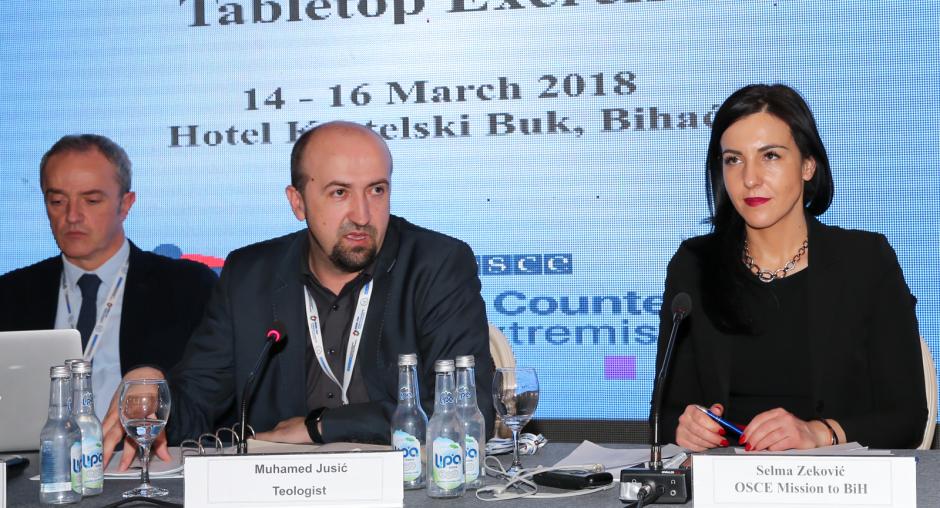OSCE concludes second tabletop exercise on countering violent extremism in Bosnia and Herzegovina

BIHAC, Bosnia and Herzegovina, 16 March 2018 – The OSCE Mission to Bosnia and Herzegovina (BiH), in co-operation with the Partnership for Peace Consortium’s Counterterrorism Working Group, concluded a two-day tabletop exercise in Bihac today, focusing on practical views and ideas in addressing the challenges of violent extremism.
The exercise gathered more than 70 participants – representatives from all levels of government, judiciary, law enforcement agencies, civil society, media, education sector, health sector, religious institutions and local communities – who had the opportunity, through the simulation of scenarios, to address the issue of the return and reintegration of foreign terrorist fighters and the local level response.
“The aim of this exercise is to build capacity among both national and local actors to deal with violent extremism more effectively,” said Chief of Policy and Planning at the OSCE Mission to BiH Joeri Maas. “The structural complexity of BiH can make cross-institutional response and co-ordination difficult. However, the wide range of participants here today showed how much political will exists to address this important issue.”
Professor Peter Forster of the Partnership for Peace Consortium’s Counterterrorism Working Group said: “Tabletop exercises offer a forum in which discussions on how to prevent, intervene, and mitigate violent extremism may be translated into national and local policies and supporting programmes. This event brought together broad expertise and I envision it resulting in initiatives that enhance society’s capacity to address these threats, thereby improving BiH’s safety.”
According to Una-Sana cantonal Prime Minister Husein Rosic, it is important to have these discussions at the local level because it is closest to the citizens. “The local level is where problems, such as the phenomena of imposing extremist views, can be identified at an early stage. This is why we need to act preventively on this level and explain that freedom of opinion does not justify violent behavior.”
